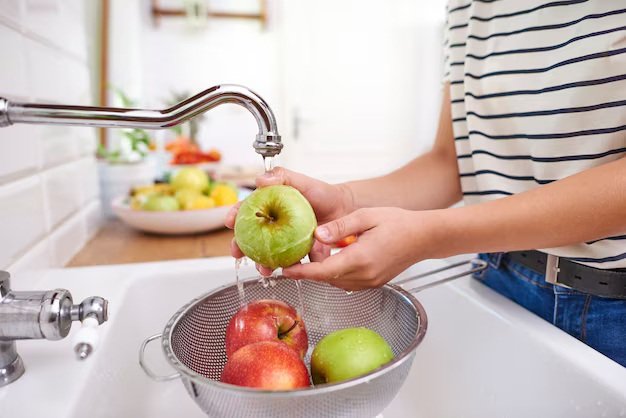10 Sustainable Food Practices Examples
Food is more than taste and calories. How we grow, move, eat and throw away food shapes our health, our wallets and the planet. Right now, farming, land use and the whole food chain produce roughly a third of human-caused greenhouse gases and use huge shares of freshwater and land, so small changes at the farm, in stores, and on our plates add up fast. According to FAO, agrifood systems produced about 16.2 billion tonnes CO₂-equivalent in 2022, roughly a third of global emissions.
That same system also leaks value: food lost or wasted represents an enormous missed opportunity. Recent data-driven analyses show that the value of surplus food has risen into the hundreds of billions of dollars. Tackling waste is one of the fastest ways to cut emissions while feeding more people. A 2023 report by ReFED revealed the scale and economic value of surplus food in the U.S. food system and identified high-impact solutions.
So when we talk about “sustainable food practice,” we mean concrete fixes — farming methods that build soil instead of eroding it, irrigation systems that save water, markets that cut food miles, programs that rescue and redistribute food, and diets that ease pressure on land and animals. Below, I walk you through ten proven practices, share stories of real people who’ve made them work, and explain how anyone can begin to change their own food footprint.

In This Article
- 1. Regenerative Agriculture
- 2. Cutting Food Waste
- 3. Community-Supported and Institutional Buying
- 4. Plant-Forward Diets
- 5. Agroforestry
- 6. Urban and Community Farming
- 7. Composting and Circular Organics
- 8. Precision Irrigation
- 9. Sustainable Seafood Sourcing
- 10. Vertical Farming and CEA
Ten sustainable food practices that actually work
1. Regenerative Agriculture
Regenerative agriculture is a set of practices that rebuild soil organic matter, increase biodiversity and store carbon in the ground. Farmers who have switched to cover crops, diverse rotations, no- or low-till and managed grazing report stronger drought resilience and rising soil health. One review of soil-health approaches and long-term farmer experience highlights both the carbon and on-farm benefits of these methods. According to practitioners and researchers, regenerative systems can increase resilience and help reverse soil decline.
2. Cutting Food Waste
Cutting food waste is one of the highest-impact, fastest wins for people and planet. Programs and apps that rescue unsold food for sale or donation reduce emissions and recover economic value. Global food-waste studies estimate billions of tonnes of food wasted each year; tackling that gap shifts resources to people and shrinks the climate footprint of our food. A report by ReFED in 2021 and impact reporting from companies like Too Good To Go have quantified both the scale of the problem and practical fixes in retail, hospitality and households.

3. Community-Supported and Institutional Buying
Community Supported Agriculture (CSA) and farm-to-institution buying realign markets so local farmers get steady income and schools, hospitals, and families get fresher, shorter-chain food. The USDA Farm to School Census found millions of students served and billions spent on local food in recent years — proof that institutional buying can shift demand and support smaller farms. According to USDA Farm to School data for 2022–23, tens of millions of students participated, and about $1.8 billion was invested in local food purchases that year.
4. Plant-Forward Diets
Shifting to plant-forward diets — not necessarily 100% plant-based, but with fewer animal products and more legumes, vegetables, and whole grains — offers major environmental and health benefits. The EAT-Lancet Commission has mapped dietary patterns that promote health while reducing environmental pressure, showing how lowering red meat and ultra-processed food consumption can improve well-being and cut food-system emissions. It identifies dietary change as a core strategy for building healthy, sustainable food systems.

5. Agroforestry
Agroforestry — integrating trees with crops and livestock — restores soils, stores carbon and diversifies farm incomes. Scientific groups working on trees and food note that adding tree cover on farms can sequester large quantities of carbon while improving water and nutrient cycles and supplying fruit, timber and shade. FAO and CIFOR-ICRAF have documented both the ecological and farmer livelihood benefits of agroforestry at scale.
6. Urban and Community Farming
Urban and community farming turns unused spaces into food, improves access and reconnects people to where food comes from. Community gardens and food forests also return nutrients to the soil and shorten supply chains for city residents. High-profile practitioners such as Ron Finley in Los Angeles have shown that humble street-side gardens can change a neighbourhood’s food options and civic life. According to reporting and Finley’s talks, his work turned public spaces into productive gardens and inspired other urban-agriculture projects.

7. Composting and Circular Organics
Composting and circular organics systems close the loop by turning kitchen and farm waste back into soil amendments. Cities that invested in mandatory food-scrap collection and processing have significantly reduced landfill methane and returned nutrients to local farms and parks. San Francisco’s organics program and other city case studies show how policy, collection infrastructure and markets for compost can create large diversion rates and measurable climate benefits. According to the San Francisco Department of the Environment and analyses by NRDC and EPA, large municipal compost programs have cut landfill disposal and supported local soil health initiatives.
8. Precision Irrigation
Precision irrigation and drip systems use sensors, weather data and targeted delivery to save water and energy. Field-level trials and reviews show that drip and sensor-based irrigation can reduce water use by substantial percentages and raise water-use efficiency compared with flood irrigation. A 2024 review found precision irrigation is a promising route to both water savings and yield stability under climate stress. According to FAO guidance and recent literature, drip and precision methods often deliver the biggest water savings per unit of crop.
9. Sustainable Seafood Sourcing
Sustainable seafood sourcing — choosing species and methods that avoid overfishing and habitat damage — protects ocean life and fishing communities. Tools such as the Monterey Bay Aquarium’s Seafood Watch provide regionally specific guidance so consumers and chefs can buy fish with lower environmental risk. According to Seafood Watch, following science-based guides helps markets reward better fisheries and aquaculture.
10. Vertical Farming and CEA
Vertical farming and controlled-environment agriculture (CEA) can produce vegetables close to consumers, reduce transport, and save water per kilogram in controlled trials. Companies experimenting with stacked, LED-lit CEA report dramatic water efficiencies relative to open-field production and show how technology can decouple supply from seasonality in dense cities. AeroFarms and similar firms claim large water-savings figures in their operational studies; independent case analyses also document those benefits while noting energy and cost trade-offs to manage. According to AeroFarms and case reviews, vertical farms can use up to about 95% less water than conventional field farming for certain leafy crops.

Below is a compact comparison table that makes the scale of a few of these benefits easier to see — numbers come from the sources cited above and are intended as indicative, not universal, since site, crop and technology affect results.
| Practice | Typical benefit (representative findings) | Source (example) |
|---|---|---|
| Agrifood emissions share | ≈ one-third of global GHGs (16.2 Gt CO₂e in 2022) | According to FAO, 2023–2024 data. |
| Food waste economic value | Surplus food value in recent U.S. analysis: hundreds of $B | ReFED (2023) analysis. |
| Drip/precision irrigation | Water savings often 20–60% (or more) vs flood; up to ~40% GHG savings vs less efficient irrigation | FAO/Drawdown and recent reviews. |
| Vertical farming (leafy greens) | Up to ~95% less water per kg in company case studies (varies) | AeroFarms case materials and independent reviews. |
| Farm-to-school impact | ~$1.8 billion local food purchases (SY 2022–23); 45.6M students reached | USDA Farm to School Census 2023. |
People and case studies that prove these practices work
When readers ask “is this practical?” I point to people who did it. Gabe Brown, a North Dakota rancher and author of Dirt to Soil, shifted from conventional cropping and grazing to a mix of cover crops, diverse rotations and managed grazing. His experience is widely cited by the soil-health movement: Brown reports better drought performance, lower input costs and improving soil organic matter after years of practice. Practitioners, extension services and interviews describe his farm as a real-world example of regenerative results. According to interviews and profiles of Gabe Brown, his farm is a leading example of how soil-focused practices can pay both agronomic and environmental dividends.
In South Central Los Angeles, Ron Finley turned a small stretch of public verge into a food garden to confront a local “food desert.” His TED Talk — where he says, “gardening is my graffiti” — and the Ron Finley Project have inspired community-run food forests and educational programming that improve fresh produce access for city residents. This is not a fictional anecdote; it’s a real community program that has been reported on extensively and has influenced urban-agriculture policy debates.
Food Rescue Hero, a volunteer-driven platform, connects volunteers with opportunities to rescue surplus food from businesses—such as supermarkets, restaurants, and bakeries—and deliver it directly to nonprofits fighting hunger. Its model proves that surplus-food redistribution can reduce waste, support food security, and mobilise community action.
Institutional buying also tells a practical story. In Brazil, home-grown school-feeding programs enable direct municipal or school-level purchasing from smallholder farmers, strengthening local food systems, improving nutrition, and reinforcing community-based food economies. Farm-to-school and CSA innovations have helped smaller producers weather price swings and build steady, community-anchored demand.
Vertical farms and CEA businesses provide tight case studies of resource use. Infarm publicly describes water savings and year-round production figures for leafy greens; independent case analyses show similar patterns while also flagging energy and capital-cost considerations that buyers and policymakers must weigh.
How you can start today — practical, honest steps
Start small and pick one change you can keep. If you throw away food at home, begin tracking leftovers for a week, then plan two “use-up” meals before grocery day. If you run a small shop or cafe, test an unsold-meal rescue partnership with a platform or a local shelter; Too Good To Go and donation programs have clear models and impact data to learn from.
If you have a backyard, window boxes or a community patch, grow a handful of herbs, salad leaves or beans. Ron Finley’s story shows how even tiny patches of soil can give neighbours fresh food and fresh agency — and community gardens scale with simple rules, shared tools and seed swaps. Local extension offices and community groups can help newcomers begin safely and productively.
If you buy for a family, try a short CSA share or a weekly local-market habit: prepaying a share gives farmers predictable income and often means fresher produce for you. The CSA model and farm-to-school procurement show that shifting buying patterns can create stronger local markets and reduce dependence on long supply chains.
If you run or advise a farm, test one regenerative practice (cover crops, reduced till, managed grazing) or a precision irrigation pilot on a small plot, measure results, and scale what works. Practical farmer stories like Gabe Brown’s show that stepwise adoption, local adaptation and careful record-keeping are how change becomes durable.
Finally, use buying power: ask your grocer or chef where meat, fish and produce come from. Look for science-based seafood guides, seasonal signage and farm names. The Monterey Bay Aquarium Seafood Watch and similar guides were created so shoppers and chefs could make low-risk choices that support better fisheries and responsible aquaculture.







